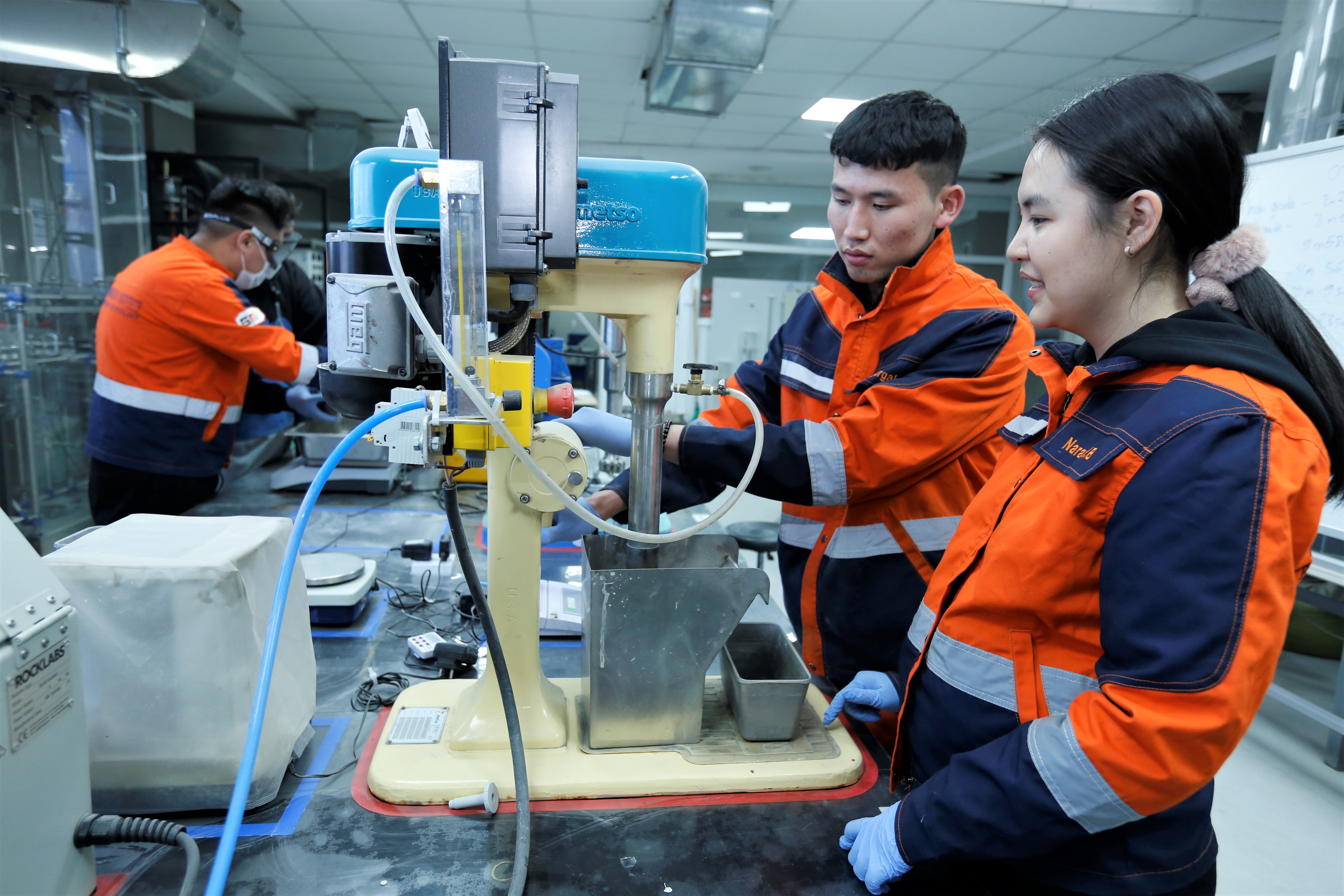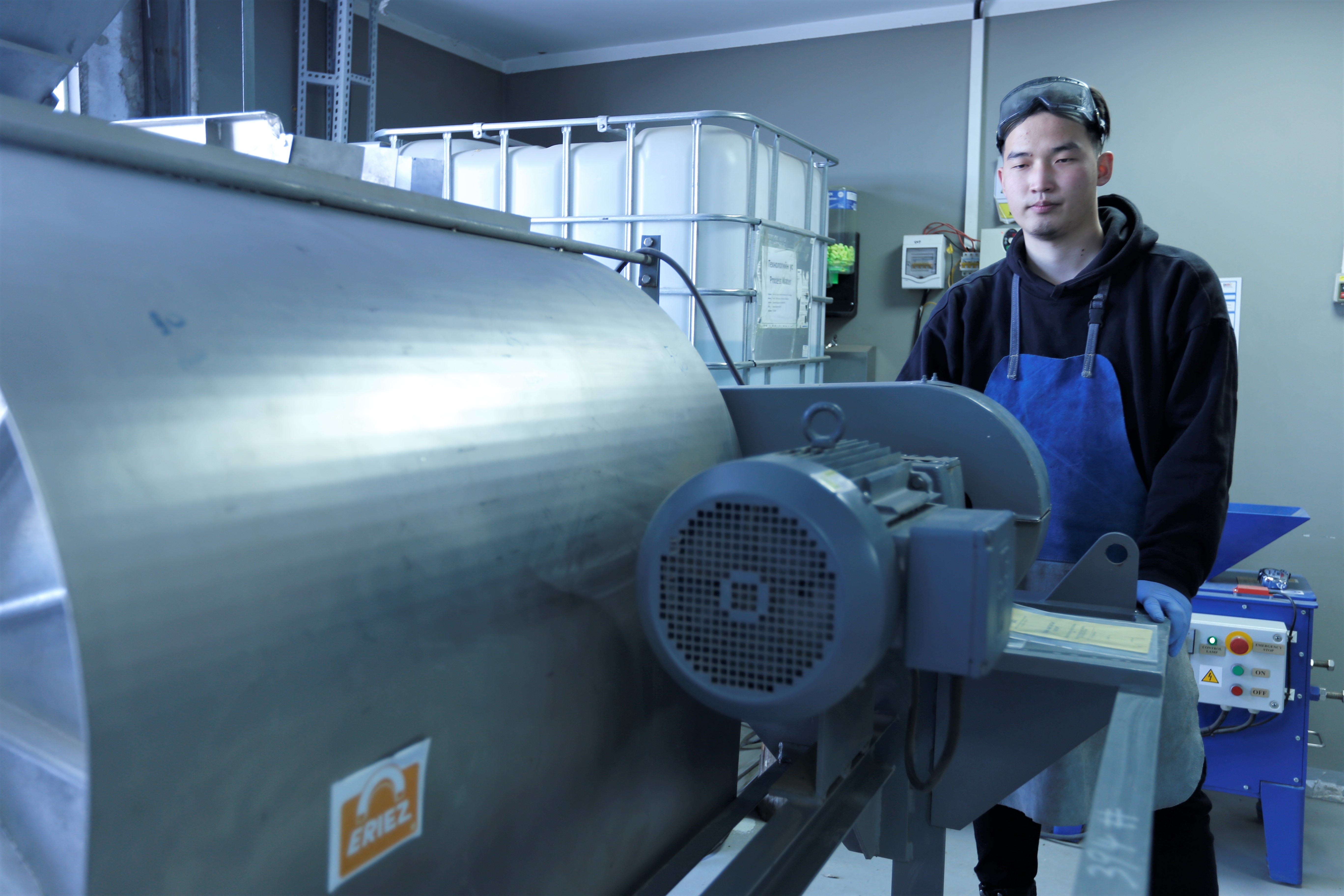Why do we offer Raw Materials and Process Engineering for You?
The regular study period of the Bachelor’s program in Raw Materials and Process Engineering (RMPE) is eight semesters, leading to a Bachelor of Science degree. The comprehensive curriculum encompasses 240 ECTS credits. The RMPE program aims to furnish students with expertise in engineering, mathematics, and natural sciences to effectively strategize, design, and oversee production processes for extracting, processing, and refining raw materials sustainably. After completing foundational studies at GMIT (Semesters 1 to 4), students are primed for specialized studies in Raw Materials and Process Engineering. Through focused areas like "Mineral process engineering", "Hydrometallurgy" and "Process Systems Engineering", students gain profound knowledge to apply key tools methodically. The bachelor's thesis sharpens problem-solving abilities and fosters innovative thinking. Graduates can analyze systems, collaborate in teams, and present findings cohesively while considering technical, economic, and social aspects.

Graduates in "Raw Materials and Process Engineering" will possess the skills to apply scientific and engineering principles to tackle challenges related to processing resources, raw materials, and other products. They excel at identifying issues, devising engineering solutions, and implementing comprehensive approaches within the realm of raw materials and process engineering. Moreover, they comprehend the impact of engineering initiatives, enabling them to make informed decisions benefiting society, the economy, and the environment. Their capabilities extend to evaluating the technical and financial feasibility of Raw Materials and Process projects while prioritizing sustainable practices for Natural Resource utilization and Environmental Preservation.
The degree program equips students with fundamental knowledge in Raw Materials and Process Engineering at the undergraduate level. The addition of elective modules provides students with flexibility. Sustainability, safety, and environmental protection principles are integrated into all academic endeavors. Throughout their studies, future engineers in Raw Materials and Process Engineering develop a sense of responsibility toward society, the economy, and the environment.
Employability: RMPE engineers focus not only on raw material properties but also on meeting clients' specific product requirements. Specializing in process technologies, engineers play a crucial role in various mining stages by transforming raw materials into marketable goods. They excel in roles related to designing, simulating, enhancing, and operating processing plants and production chains to refine raw or recycled materials sustainably. This includes minerals like coal and ores as well as industrial and household waste. Additionally, graduates are responsible for ensuring environmentally conscious restoration of depleted mineral deposit areas. Mineral resources process engineers devise strategies to recover valuable substances from waste materials. By seizing diverse opportunities and continually honing their skills, graduates in Raw Materials and Process Engineering can pursue fulfilling careers contributing to the nation's economic advancement.

